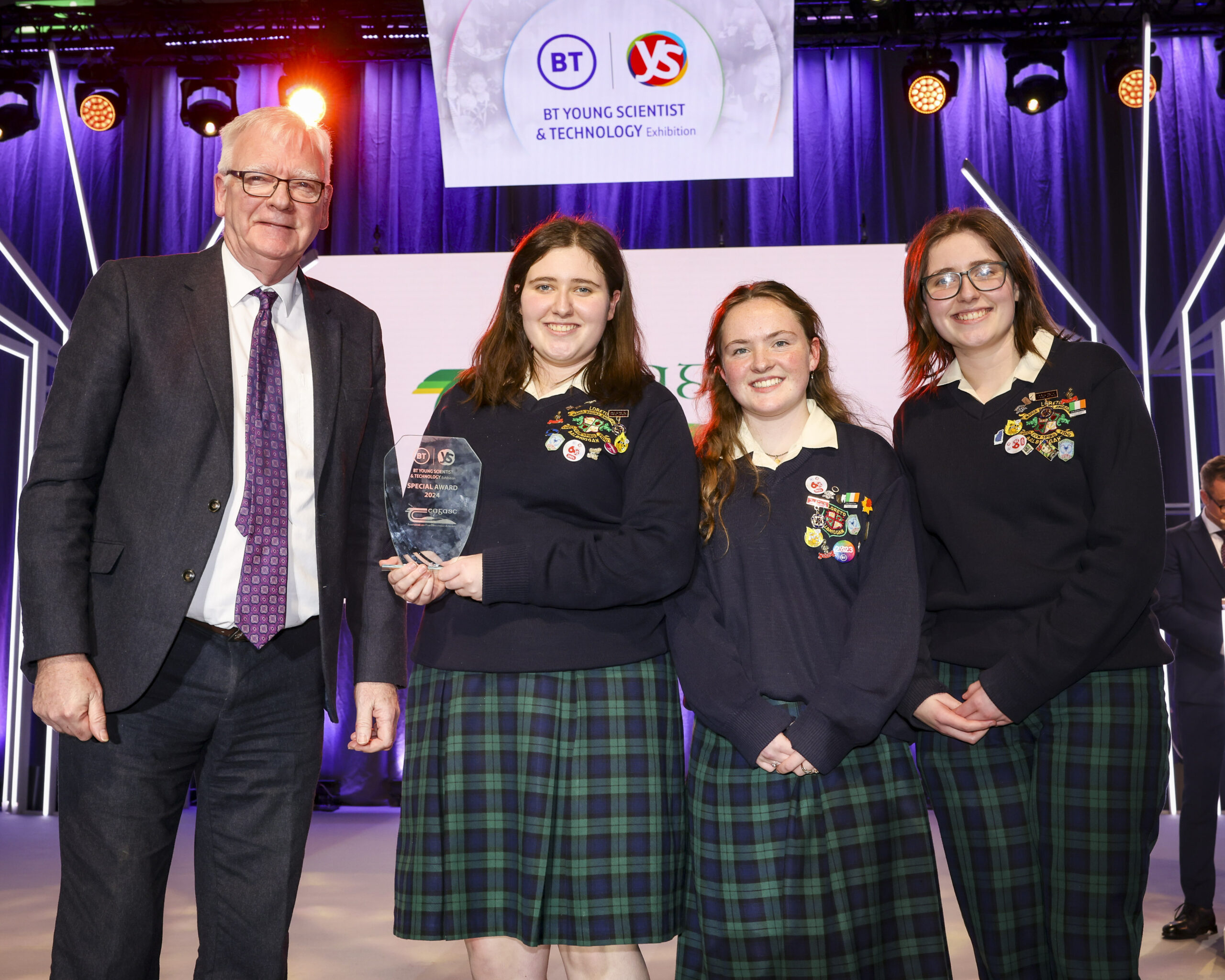15 January 2024
Students excel at BT Young Scientist 2024 with Ash Dieback Project
Abigail O’Brien Murray, Erica O’Brien Murray and Olivia O’Shea from Loreto Secondary School Balbriggan emerged triumphant at the recent BT Young Scientist receiving both the prestigious “Best Group Project” award, and the esteemed “Teagasc Special Award” for their outstanding scientific achievements.

The students should be very proud of their achievements. Their hard work, curiosity, and commitment to scientific inquiry are truly commendable.
The winning project, titled “Let’s Save the Common Ash: A Continued Story” showcased the students’ dedication, creativity, and passion for scientific inquiry in agricultural research. The collaborative effort demonstrated not only their academic prowess, but also their ability to address real-world challenges through innovative solutions.
The BT Young Scientist took place from Thursday 11th – Saturday 13th January, attracting over 1,100 participants from schools across the island of Ireland. The competition provides a platform for young minds to explore and showcase their talents in the field of science.
The team worked tirelessly to develop and present their project under the guidance of their teacher Dan Toomey. Their project stood out for its thorough research, experimental methodology, and the potential impact on addressing Ash dieback.
Team member, Olivia O’Shea explained, “Ash trees are vital for Ireland’s biodiversity and culture. Currently 90% of ash trees are affected by ash dieback, causing leaf loss, bark lesions and dieback”. Following on from our previous research, testing plant-pathogen interaction and the interplay between two hormones, we ran three different experiments, two in vitro and one in vivo”. Abigail O’Brien Murray continued; “The first in vitro experiment tested the effect our treatments have on the growth of the fungus. We took collections every two weeks for a period of five months, with six treatments in total with different concentrations and ratios of the two hormones. Erica O’Brien Murray finished by adding; “We found a treatment that works significantly across all genotypes, inhibiting the fungus on average at 82.3% and up to 92%, while also having no ill effect on the overall health and growth of the tree”.
The Teagasc Special Award, presented by the Assistant Director of Research at Teagasc, Declan Troy, recognises the project that best demonstrates a thorough understanding of the science of agricultural or food production, or the use of science to improve technologies available to agricultural or food production.
“The students should be very proud of their achievements and we wish them continued success in their scientific careers. Their hard work, curiosity, and commitment to scientific inquiry are truly commendable,” said Declan Troy. “This achievement not only reflects the talent within their school but also highlights their commitment to solving real world problems faced in agriculture and food research.”
